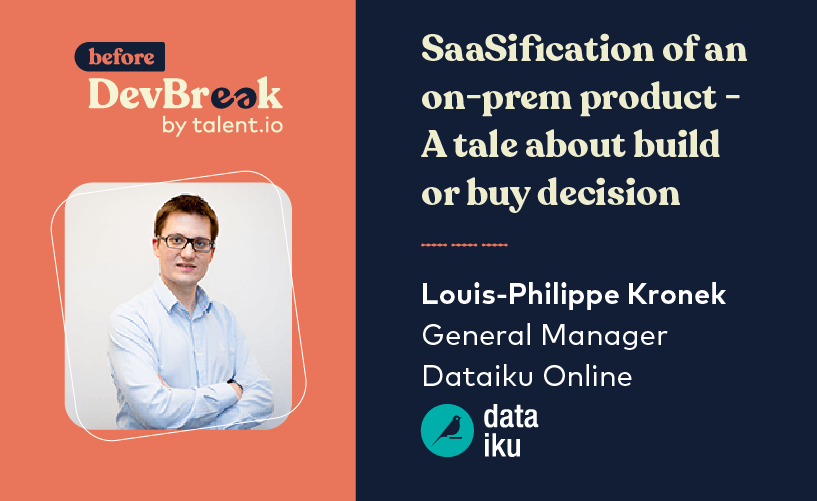
From email to repositories, ticket systems to task management, and many other functions, there’s an increased reliance on software-as-a-service tools. With this trend growing, software providers have gradually noticed a change in users’ expectations.
In comparison to legacy software, there’s greater demand for a smooth user experience that requires minimal intervention from IT personnel. There’s also a need for a self-service approach coupled with usage-based pricing.
Another important demand is for SaaS tools to be able to integrate with the wider ecosystem, sharing data and enabling more cohesive workflows with other cloud-native tools.
Dataiku started with:
Going forward, Dataiku wants to:
Building on the already great and cloud-ready product, Dataiku needed to:
They adopted Kubernetes technology, with Amazon Web Services as a provider. Dataiku opted for Amazon EKS instead of running the Kubernetes cluster themselves. They chose this setup because they had limited bandwidth and expertise for this effort, with no evidence of substantial value to be derived from running the Kubernetes themselves.
This was largely because the self-service counter was a core of the managed experience and they needed to have maximum creative control over it. Additionally, even though the core product wasn’t largely driven by these technologies, they were still widely used at Dataiku.
Furthermore, the initial team was comfortable and familiar with these technologies so it would be easy to ramp up the team if/when need be. They also chose Stripe as a payment gateway and subscription manager since they didn’t have a lot of unique needs in this area that Stripe couldn’t offer.
Where advancement was needed, they were able to migrate to Chargebee for enhanced capabilities.
Before DevBreak is a series of live, online, tech talks. Each session features a senior tech expert from an innovative company, who demonstrates how they solved major programming challenges in their business. This series is part of DevBreak, the ultimate 2-day tech festival organised by talent.io.
talent.io is Europe's leading selective recruitment platform which has over €10m fund raised and is over 170 employees strong. We help great companies build great tech teams, in the simplest way: selected companies apply directly to vetted candidates. We cover most tech roles (software engineers, data scientists, product managers, DevOps engineers, CTOs). Our platform is open to permanent positions as well as freelance assignments, both on-site and remote.